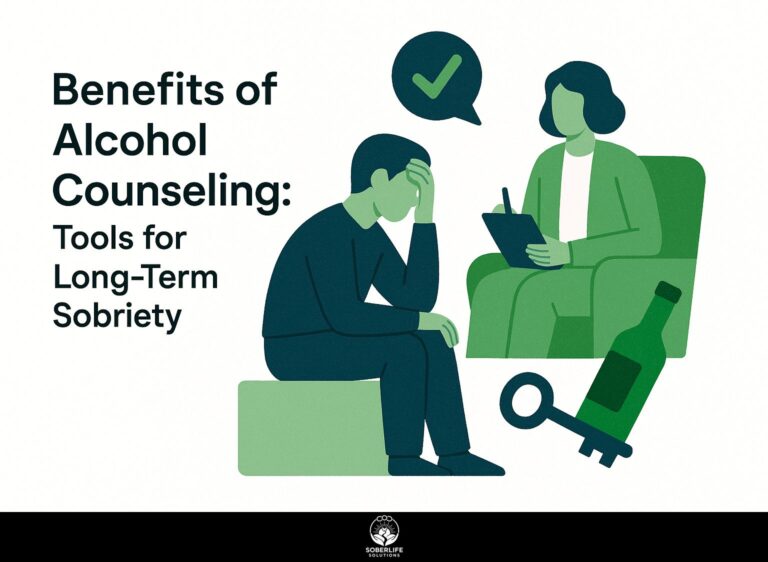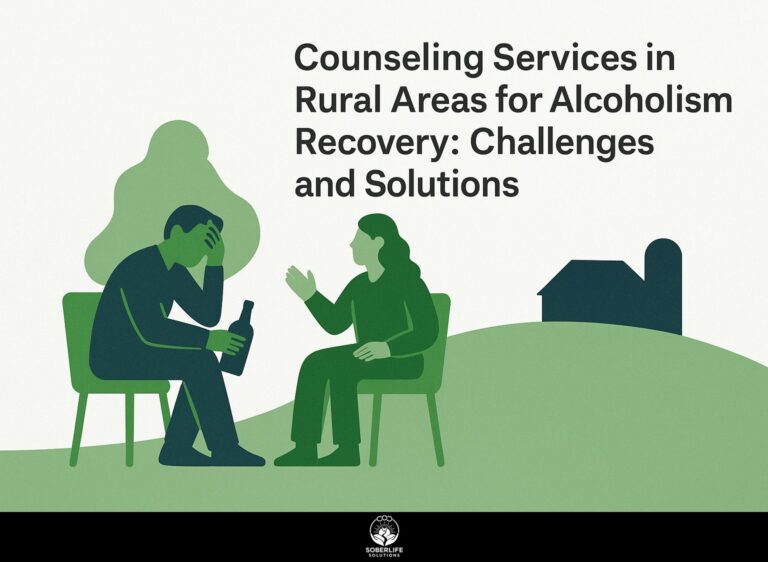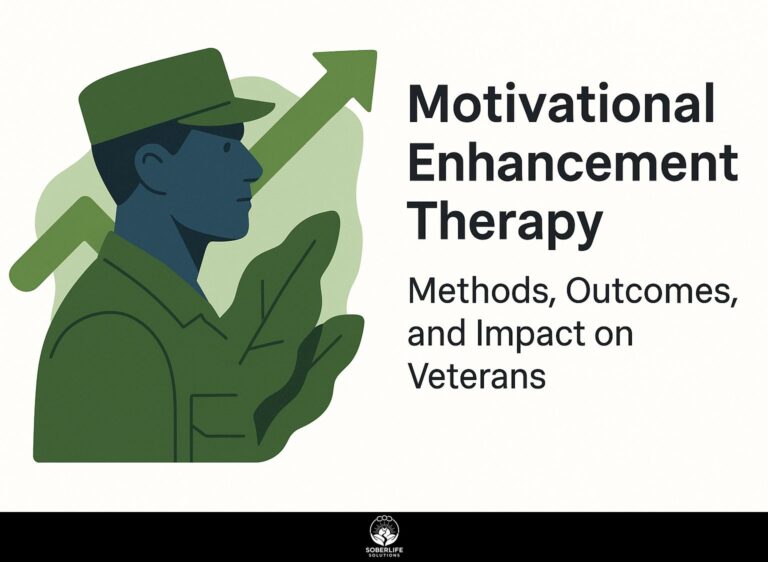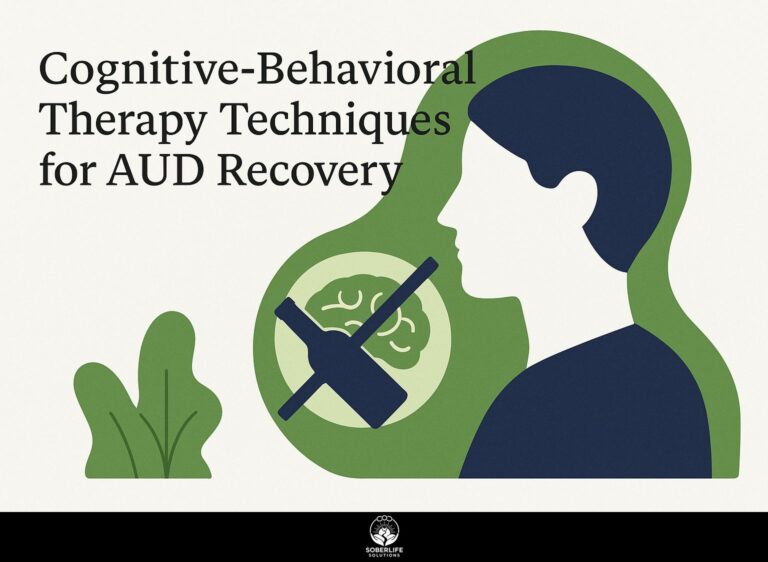Mindfulness-Based Interventions for AUD: Implications
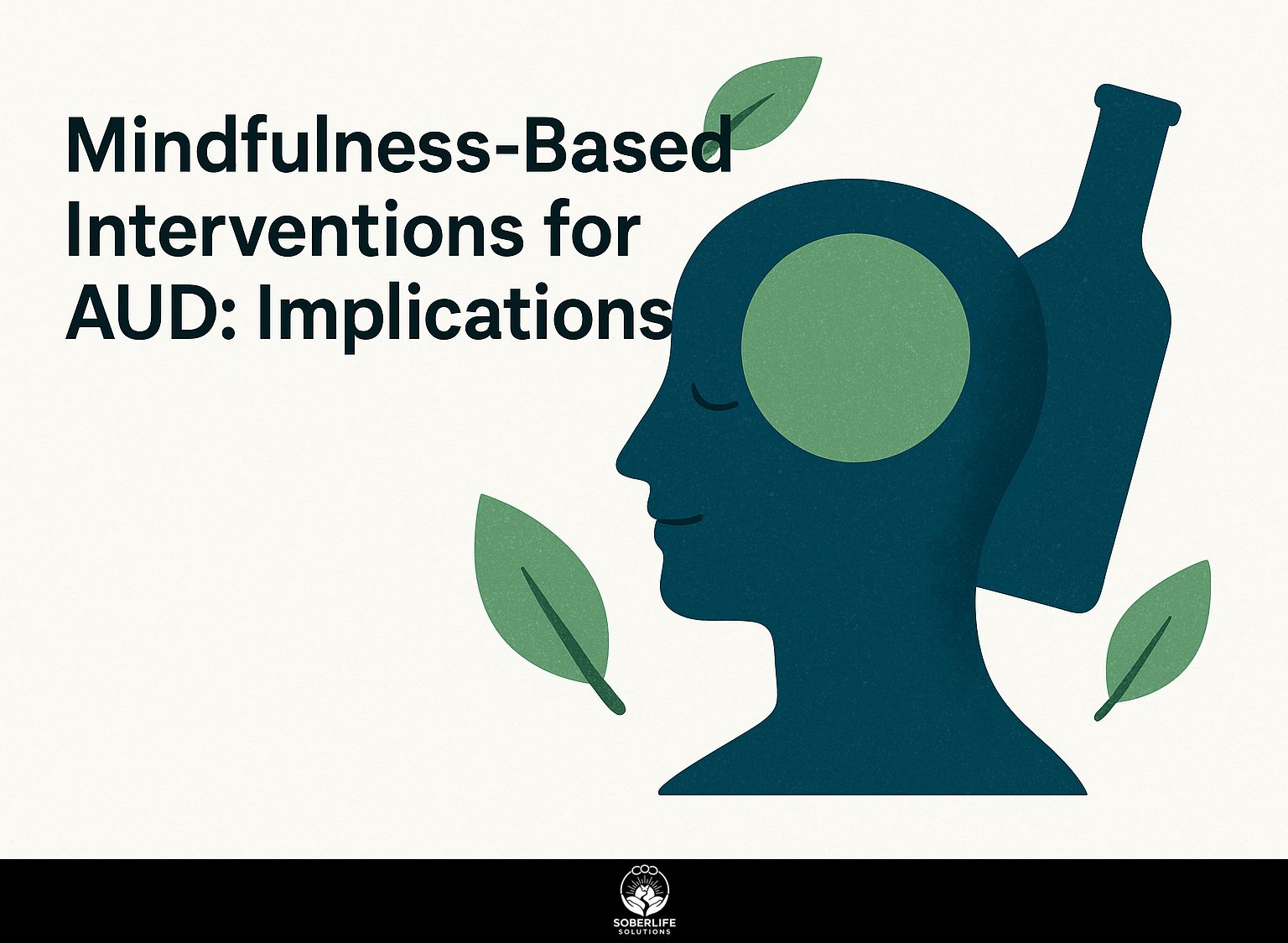
Mindfulness-based interventions are gaining traction as effective strategies to combat hazardous drinking among emerging adults, particularly within Latine populations. As alcohol use disorder (AUD) continues to increase, these mindful practices provide a way to build self-awareness and strength. This article looks at how using mindfulness methods can help with alcohol problems. It offers useful information for those who work with at-risk groups.
Key Takeaways:
Explaining Alcohol Use Disorder (AUD)
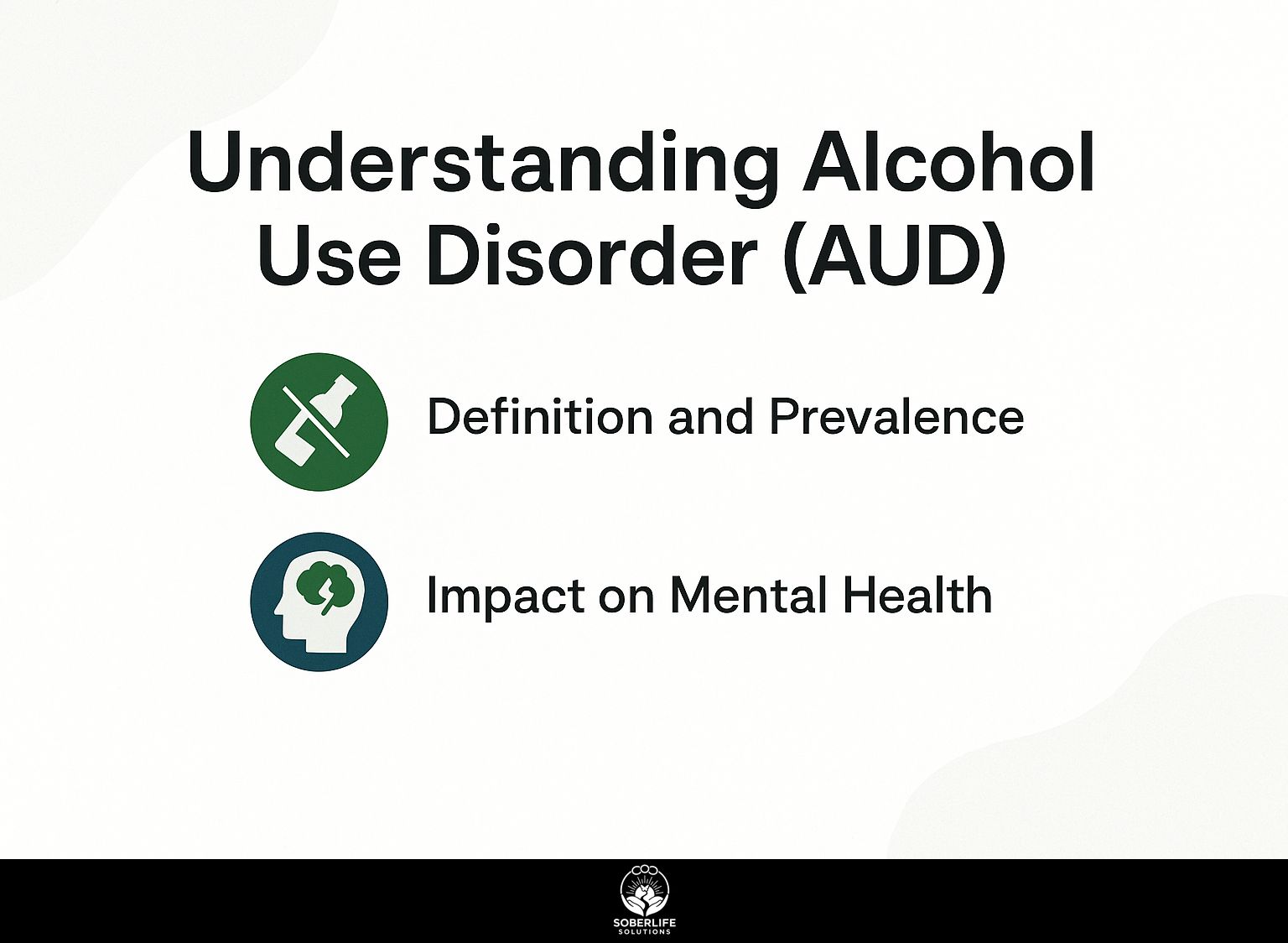
Alcohol Use Disorder (AUD) is a long-term problem that impacts many people. It involves a powerful urge to drink, an inability to manage drinking habits, and experiencing harmful emotional states. Those seeking guidance on managing these challenges may find it beneficial to know when to ask for professional help.
Definition and Prevalence
AUD affects 14.5 million adults in the U.S., with a notable rise among emerging adults, including 23% of Latine individuals reporting hazardous drinking behaviors.
The prevalence of Alcohol Use Disorder (AUD) is particularly concerning among those aged 18-25, where 16% exhibit symptoms as per the Substance Abuse and Mental Health Services Administration (SAMHSA).
Cultural factors are very important; for example, some studies show that peer pressure and family drinking habits greatly affect drinking behaviors in Latine and Black communities.
To effectively tackle AUD, community programs and specific outreach are essential. These activities should concentrate on teaching and providing resources for early help and support, customized for different age groups and cultural backgrounds, which is crucial given the troubling statistics on alcohol use in the United States (as reported by CDC).
Impact on Mental Health
The relationship between AUD and mental health is well-established, with individuals suffering from AUD often experiencing higher rates of anxiety, depression, and related mental health disorders.
Research indicates that up to 50% of individuals with Alcohol Use Disorder (AUD) also meet the criteria for at least one other mental health disorder. Effective treatments, such as Cognitive Behavioral Therapy (CBT) and Motivational Enhancement Therapy (MET), have shown positive results.
A study by Project MATCH found that individuals receiving integrated treatment for both AUD and co-occurring mental health issues had significantly better outcomes. Related insight: Couples and Family Counseling for AUD Recovery: Role and Benefits, which highlights how comprehensive treatment approaches improve overall health outcomes.
Using these methods can help with overall recovery, resulting in less drinking and better mental health, emphasizing the importance of treating the whole person.
Mindfulness Principles
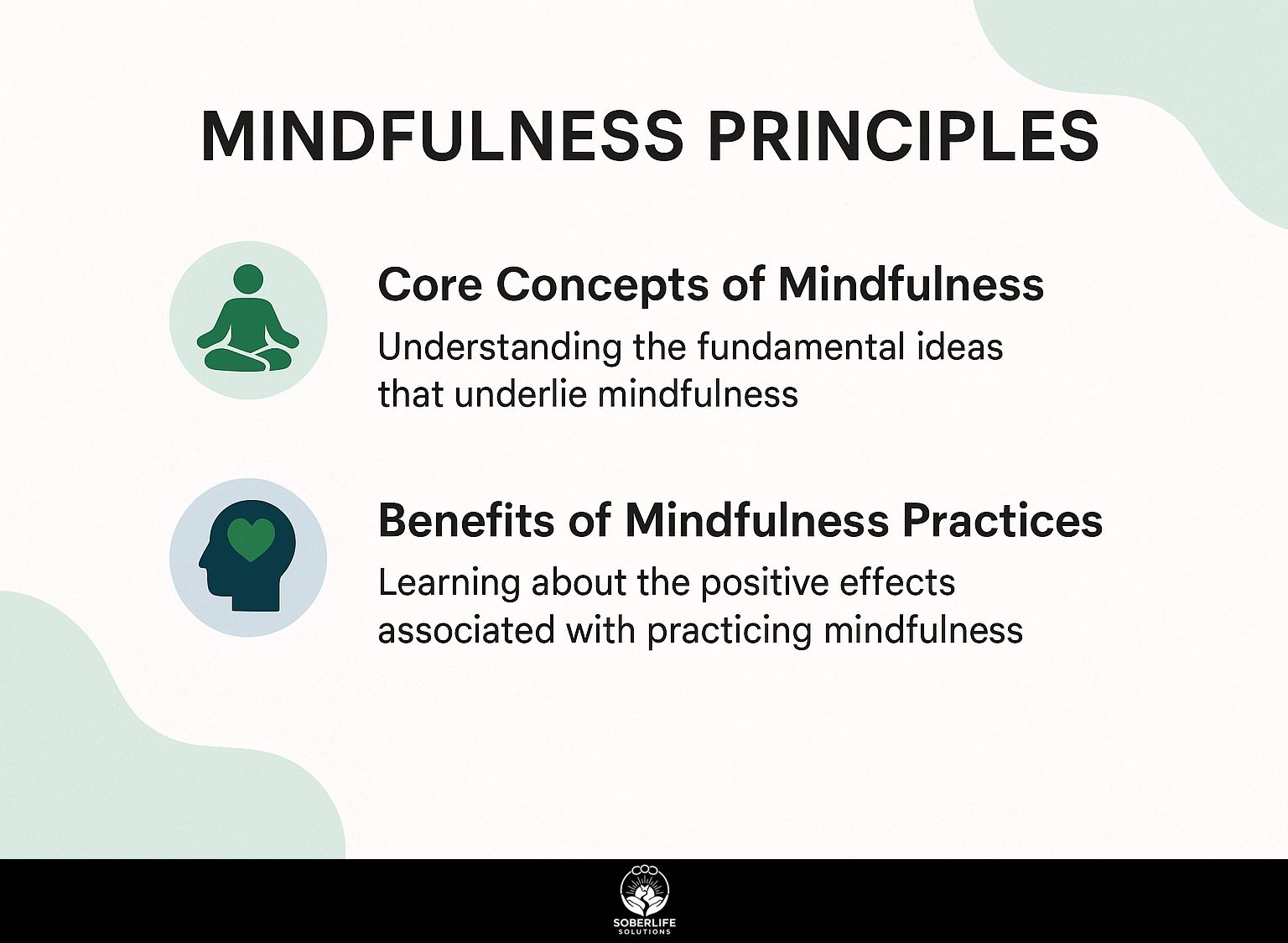
Mindfulness principles help increase awareness and acceptance of the present moment, helping with managing emotions and mental flexibility, which are important for recovering from Alcohol Use Disorder. To further support recovery, incorporating SMART Recovery principles can provide structured methods for improving these skills.
Core Concepts of Mindfulness
Core concepts of mindfulness include interoceptive awareness, cognitive control, and emotional regulation, which help individuals understand and manage their reactions to stressors.
Mindfulness-based treatments for Alcohol Use Disorder (AUD) use these ideas effectively. For instance, interoceptive awareness encourages individuals to notice physical sensations associated with cravings, allowing for healthier responses.
Practices like mindfulness meditation help improve cognitive control by focusing attention and helping people redirect unwanted thoughts about alcohol. Emotional regulation is developed by teaching individuals to observe their feelings without judgment, facilitating healthier coping mechanisms.
Integrating these practices into daily routines can significantly reduce reliance on alcohol, as evidenced by techniques like daily 10-minute meditations or guided practices through apps such as Headspace or Calming. For context, an in-depth resource by the American Psychological Association explores the research-proven benefits of mindfulness meditation, further supporting its role in enhancing emotional well-being.
Benefits of Mindfulness Practices
Engaging in mindfulness practices can reduce heavy episodic drinking by up to 50%, offering emerging adults essential coping strategies to manage stress and improve emotional regulation.
Research indicates that practices such as meditation, yoga, and mindful breathing can significantly impact drinking behaviors.
For instance, a study published in the Journal of Studies on Alcohol and Drugs found that participants who engaged in a mindfulness program reported a 30% reduction in alcohol consumption over three months.
Tools like Headspace or Calm provide guided meditations specifically designed for stress management. Including these habits in daily life can help you manage emotional triggers more effectively, which can improve mental health and reduce alcohol use for stress relief.
Mindfulness-Based Interventions for AUD
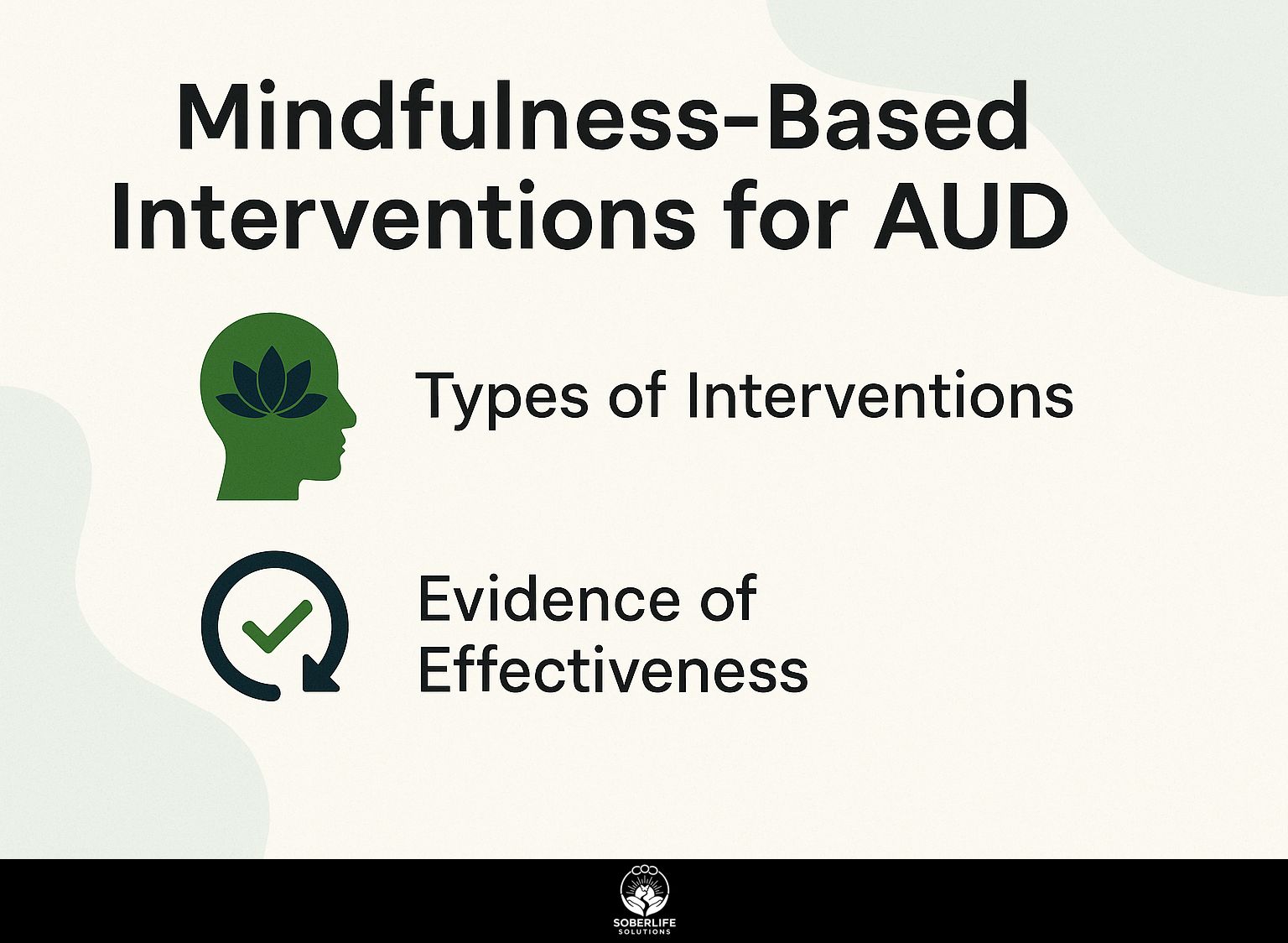
Different mindfulness-based treatments have shown promise for treating people with alcohol use disorder, leading to better recovery results.
Types of Interventions
Mindfulness-Based Relapse Prevention (MBRP), Mindfulness-Based Stress Reduction (MBSR), and cognitive-behavioral mindfulness approaches are prominent interventions designed to aid those with AUD.
These approaches emphasize building resilience through structured techniques like meditation and awareness training. MBRP specifically targets individuals recovering from alcohol use disorder by teaching relapse prevention strategies through mindfulness practices.
MBSR helps lower stress by using body scanning and mindful yoga, which can be especially helpful for controlling cravings.
Tailoring these practices for Latine populations often includes incorporating cultural values and community support systems, enhancing their effectiveness.
Utilizing tools like guided meditation apps or community workshops can further facilitate these interventions.
Evidence of Effectiveness
Many studies show that mindfulness exercises can improve how well people stick with treatment by up to 40% and greatly decrease binge drinking episodes in participants.
For instance, a study published in the journal Substance Abuse found that participants who engaged in mindfulness-based interventions (MBIs) showed a noticeable increase in retention rates during treatment programs.
MBIs led to a 25% reduction in binge drinking episodes compared to control groups. Practicing techniques such as mindful breathing or meditation for just 10 minutes a day can help individuals manage cravings and stress, which are significant contributors to relapse.
Integrating these practices into recovery plans can lead to more sustained recovery outcomes.
Implementation Strategies
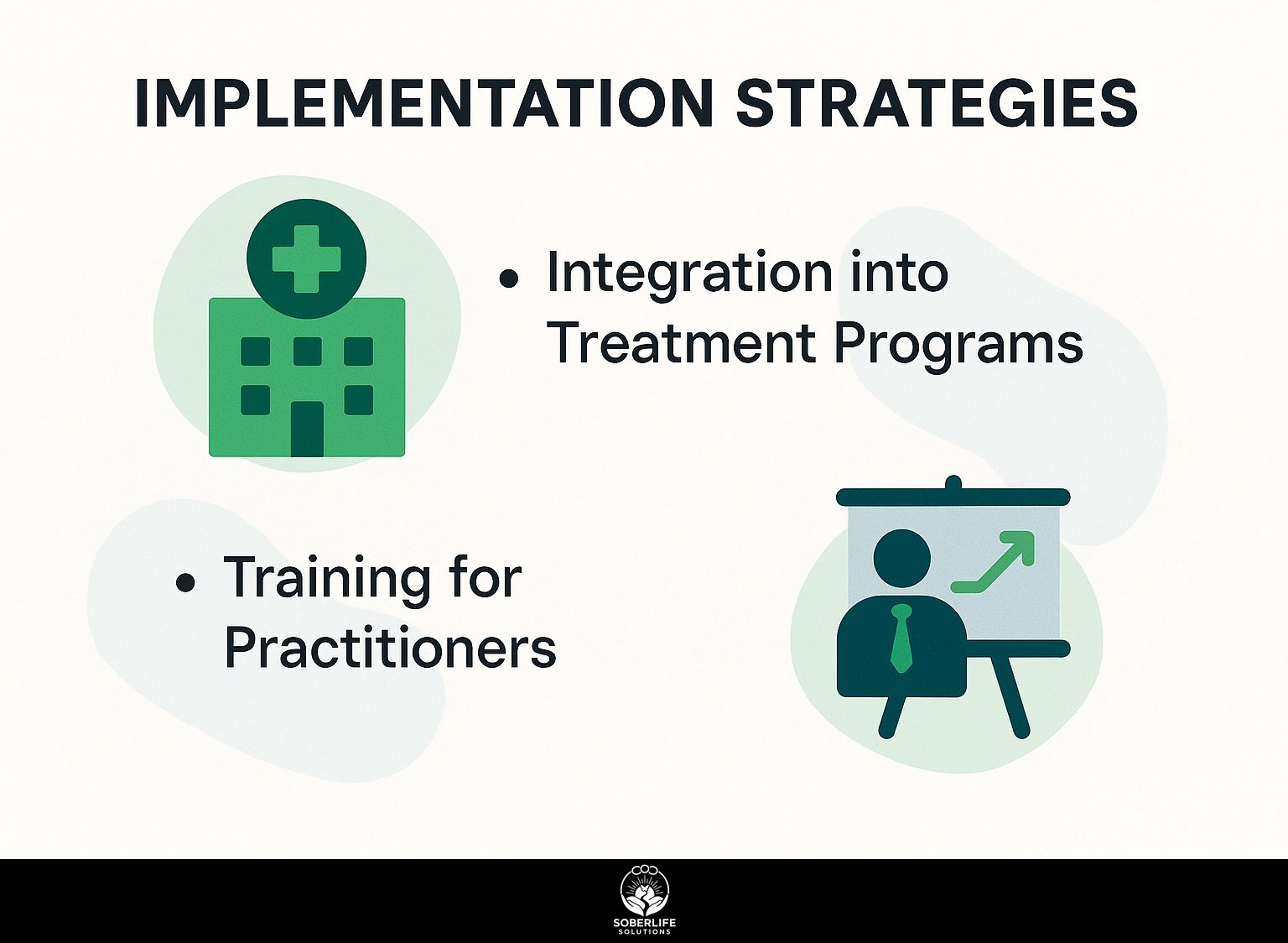
To effectively include mindfulness-based methods in treatment plans, careful planning is needed. This planning should consider the unique needs of different groups, such as Latine young adults. If you’re interested in understanding how behavioral therapy can complement these mindfulness strategies, exploring various approaches and their benefits can provide valuable insight.
Integration into Treatment Programs
Including mindfulness methods in current treatment plans can improve the overall effectiveness and reach for people with AUD.
One practical approach is to add mindfulness exercises during regular counseling sessions. For instance, incorporating a 5-10 minute guided meditation at the beginning can help clients become more present and engaged.
Therapists could collaborate with community resources such as local yoga studios to offer workshops that promote mindfulness practices. Using apps like Headspace or Calm can also provide clients with tools to practice mindfulness daily, reinforcing skills learned in therapy.
Creating a helpful setting around these practices can greatly improve the treatment experience for clients.
Training for Practitioners
Teaching professionals about mindfulness methods is important for ensuring they are used well and changed to meet the needs of different communities facing health inequalities.
To improve their skills, clinicians should consider these training options:
- Enroll in the Mindfulness Based Stress Reduction (MBSR) program, recognized for its evidence-based approach;
- Obtain certification through the Mindfulness-Based Professional Training Institute;
- Participate in workshops offered by organizations like the Center for Mindfulness in Medicine.
Ongoing education can be achieved through webinars or online courses focusing on specific mindfulness techniques and cultural competency, enabling practitioners to better address the unique needs of their communities.
Challenges and Limitations
Even though mindfulness-based treatments show promise, there are many challenges and limits that prevent their widespread use and success in treating Alcohol Use Disorder (AUD).
A big problem is the negative perception of mental health, which can prevent people from asking for support. To combat this, practitioners should engage in outreach programs that normalize discussions around mental health and mindfulness.
Another issue is dropout rates in treatment programs; using tools like the Mindfulness-Based Relapse Prevention (MBRP) manual can improve participant involvement by offering clear instructions.
It’s important for programs to respect cultural differences; by including the customs and languages of different cultures, mindfulness can become more accessible and appealing to a wide range of people.
Upcoming Paths and Study Outcomes
Upcoming studies will look into new ways to improve mindfulness-based treatments for AUD, emphasizing individual needs and cultural significance.
To achieve this, researchers should focus on several important areas.
Studying the experiences of Latine individuals with alcohol use disorders and mindfulness can highlight cultural factors that affect them. Changing current MBIs to include practices that fit cultural traditions, like traditional healing or community support, can increase participation.
Using tools like surveys or focus groups will gather feedback, ensuring efforts align with the target audience. These steps will help create specific actions that better address the needs of different communities.
Frequently Asked Questions
What is the purpose of mindfulness-based interventions for AUD?
The purpose of mindfulness-based interventions for AUD is to help individuals develop a greater sense of self-awareness and to learn how to manage their alcohol use in a healthier, more mindful way. These interventions focus on teaching individuals skills to cope with triggers, cravings, and other challenges related to alcohol use.
How do mindfulness-based interventions differ from traditional treatments for AUD?
Mindfulness-based interventions for AUD focus on promoting self-awareness and self-regulation, rather than solely addressing the physical dependence on alcohol. These methods use techniques like meditation, deep breathing, and body scans to help people recognize and handle their thoughts and feelings about alcohol use.
Are mindfulness-based interventions effective for treating AUD?
Research has shown that mindfulness-based interventions can be effective for individuals struggling with AUD. These interventions have been found to improve self-awareness, self-regulation, and overall well-being, and have also been associated with reduced alcohol consumption and an increased ability to cope with triggers and cravings.
What are the potential implications of using mindfulness-based interventions for AUD?
Mindfulness-based methods for treating Alcohol Use Disorder (AUD) can help people and influence the broader healthcare system. By incorporating these interventions in treatment for AUD, there is potential for reduced relapse rates, improved overall health and well-being, and lower healthcare costs related to AUD treatment.
Can mindfulness-based interventions be used in conjunction with other treatments for AUD?
Yes, mindfulness-based interventions can be used in conjunction with other treatments for AUD. These interventions can be complementary to traditional treatments, such as therapy and support groups, and can provide individuals with additional skills and tools for managing their alcohol use.
What are some examples of mindfulness-based interventions for AUD?
Some examples of mindfulness-based interventions for AUD include Mindfulness-Based Relapse Prevention, Mindfulness-Based Cognitive Therapy, and Mindfulness-Based Stress Reduction. These programs use different mindfulness techniques to help people create better ways to handle alcohol use disorder (AUD).



